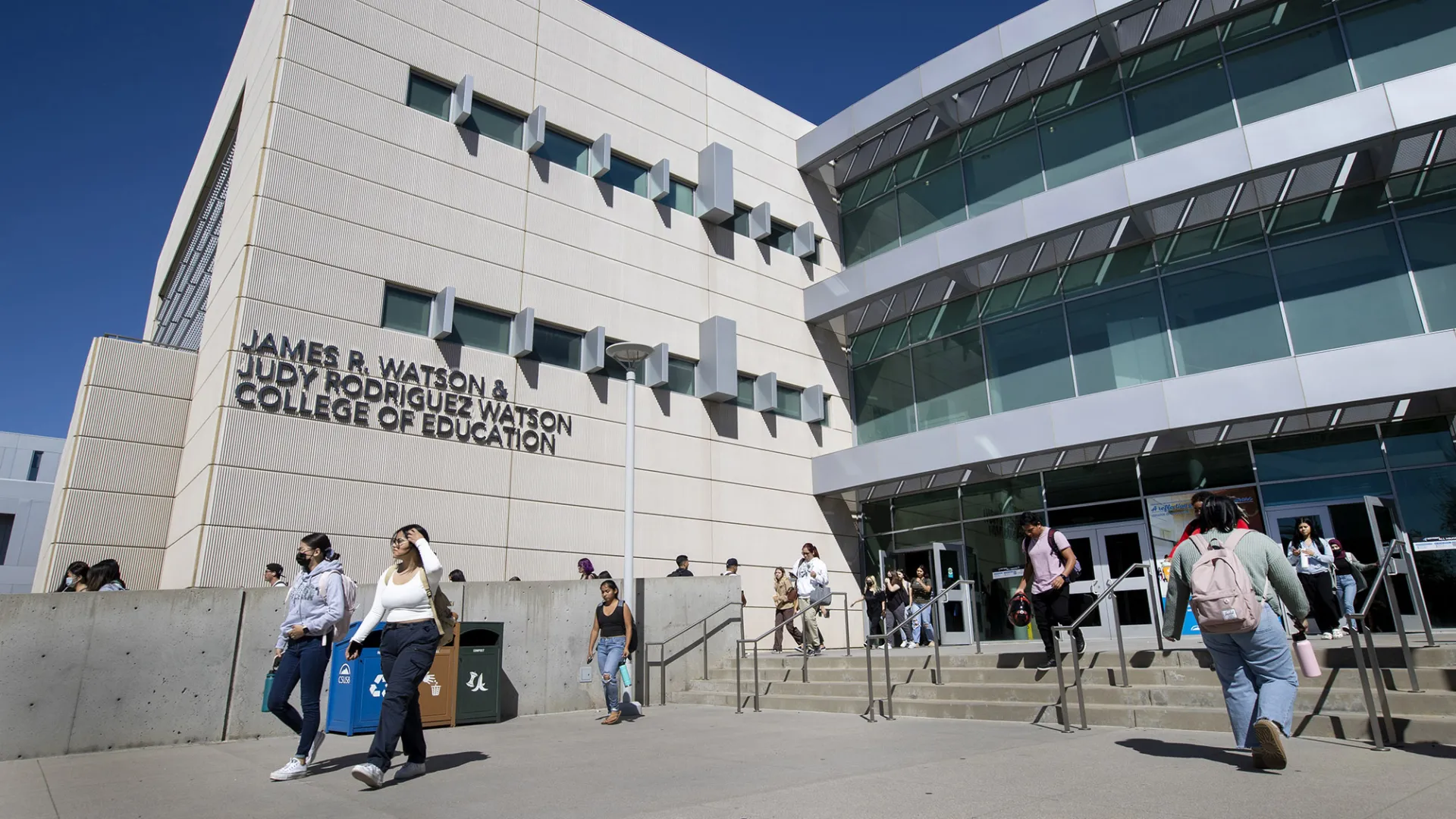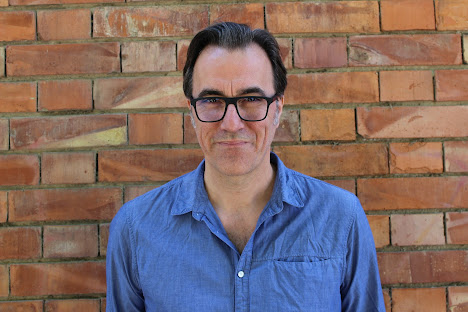Alan Llavore | Office of Strategic Communication | (909) 537-5007 | allavore@csusb.edu

The California Department of Education defined Bilingual Education as one of its main priorities in the Global California 2030 Report. In a bold move, the James R. Watson and Judy Rodriguez Watson College of Education at Cal State San Bernardino, in partnership with San Bernardino Valley College (SBVC), applied – and received – $500,000 funding for the IBAP (Integrated Bilingual Authorization Program) grant from the California Commission on Teacher Credentialing (CTC).
The grant’s duration spans two years, from 2023 to 2025, aiming to enhance bilingual education at CSUSB.
Under the direction of Jordi Solsona-Puig, principal investigator of the grant and CSUSB Spanish Bilingual Authorization co-coordinator, the funding will provide full tuition to cohorts of bilingual students who have demonstrated language competency, interest in becoming bilingual teachers, coming from the Integrated Track and pursuing their Multiple Subject Credential with an added Spanish Bilingual Authorization at CSUSB.

San Bernardino and Riverside counties, which CSUSB serves, have tremendous potential to develop multilingualism and quality education through enrichment programs. There is an increasing interest by school districts in quality bilingual programs such as Dual Immersion.
To that end, the Watson College of Education organizes a yearly event, the Dual Immersion Symposium, with the aim to become the bilingual education reference in the Inland Empire. Given the high percentage of Hispanic demographic within the Inland Empire, Spanish is the dominant partner language in these programs.
However, school districts are having trouble finding qualified bilingual teachers, creating a discrepancy between the number of Hispanic students demanding quality bilingual education and the numbers of qualified teachers. Thence, enhancing bilingual teaching preparation programs is not only socially just and equitable, but important for culturally proficient educational practices and quality educational programs for all.
The Inland Empire demographics show that 51% of the population are Hispanic and 20% of that population are English Language Learners. And that makes bilingual education a high priority in the region. With the help of the IBAP grant, the Watson College of Education aims to increase by 2026 the number of student teachers (up to 36 students per year) to obtain the Spanish Bilingual Authorization integrated path.
Chinaka DomNwachukwu, dean of the Watson College of Education, supports the effort.
“Bilingual education programs at our college are not just about teaching languages; they are a cornerstone of equity and inclusion in education,” he said. “In training our student teachers about these enrichment programs not only do we provide students with the pedagogical skills or fluency in partner languages but also bridge cultural gaps and foster a deeper understanding of diverse perspectives. Thanks to the IBAP grant, we are able to offer full tuition opportunities to aspiring educators, ensuring that our college remains a beacon of accessible, inclusive and globally minded teacher preparation.”
In this effort, the IBAP grant aims to implement, create and expand Integrated Teacher Preparation Programs in the shortage field of credentialed bilingual teachers. This project will expand and enhance the existing Spanish Added Bilingual Authorization integrated pathway from a five-year program to a four-and-a-half-year program. The project’s main goal is to increase the number of graduates receiving a bilingual credential with the increasing needs of Inland Empire school districts. The target impact of this project is to provide a qualitative program, in an efficient and cost-effective way for teacher candidates that will lead to a higher number of credentialed bilingual educators teaching in the region’s school districts.
Verónica León-Mendez is a recent graduate form the Integrated Bilingual Authorization. She said, “The bilingual authorization program provided me with many opportunities. I acquired a deeper understanding of Spanish language and culture. It allowed me to teach in a Dual Immersion or mainstream program, which helped me to stand out when applying for jobs.
“Additionally, I was able to make connections and collaborate with diverse people. Overall, the program has been very beneficial for my career,” León-Mendez said.
The IBAP’s new program will help prepare teacher candidates by including bilingual-specific coursework, classroom instruction, field experience and financial assistance by providing full-tuition scholarships.
During the first two years of the program, the students will take general education courses and the courses required for the designed IBAP Integrated Track. In the last two-and-a-half years of the program, students will focus on taking the courses that are a requirement for the Multiple Subject Teaching Credential they plan to pursue. Once the students have completed all requirements, in the last semester they will focus on the added Bilingual Authorization, taking bilingual preparation courses, completing field work and student teaching in a bilingual setting. This allows the students to gain experience using a bilingual approach in the classroom and teaching diverse students.
The grant will not only prepare the bilingual teacher candidates but also create job opportunities for the graduate and undergraduate students.
The primary objectives of the program and IBAP grant are:
● To enhance the Spanish Bilingual Authorization credential within the CSUSB teaching preparation program, providing more graduates with the necessary qualifications for bilingual teaching positions.
● Promote and advocate for the value of bilingualism, culturally proficient educational practices, and quality educational programs for all students.
● To progress from the shortage of bilingual teachers in the Inland Empire region. The project aims to meet the increasing needs of local school districts and provide culturally responsive education for the diverse population.